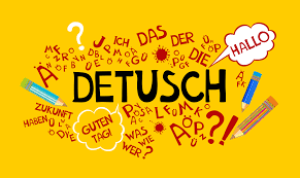Most Confused Words in German
One of the most common challenges when learning German is that some words are very similar, yet their meanings differ subtly. Beginner and intermediate students, in particular, can make small but significant mistakes by using these words incorrectly. These errors can sometimes completely change the meaning of a sentence or hinder communication.
In this article, we've compiled frequently confused words in German and explained their differences in meaning and correct usage with examples. This way, you can use German more accurately and clearly in both everyday conversations and written texts. This guide will simplify your language learning process and help you avoid misunderstandings.
The Most Commonly Confused Words in German
While some words in German are very similar in pronunciation or spelling, their meanings are completely different. This is why students can make mistakes, especially when speaking or reading quickly. Knowing the differences between words not only helps you speak correctly but also helps you better understand the texts you read.
In this article, we'll examine frequently confused words, categorized by topic. We'll illustrate the correct use of each word and situations that could lead to misunderstandings with examples, helping you minimize errors in everyday conversation and written communication.
Confused Expressions in German
als / wie
○ als: …than → He is taller than I am. – He is taller than I am.
○ wie: …like → He is so taller than I am. – He is as tall as I am.
seit / vor
○ seit: …since → I have been learning German for two years. – I have been learning German for two years.
○ vor: …before → I have been learning German for two years. – I moved to Berlin two years ago.
wissen / kennen
○ wissen: to have knowledge → I have been learning German for two years. – I know German is difficult.
○ kennen: to know, to be familiar with → I know this teacher. – I know this teacher.
haben / sein (perfect tense)
○ haben: most verbs → I have read this book. – I have read the book.
○ sein: verbs of motion/state → I have been to Berlin. – I have been to Berlin.
mögen / gern haben
○ mögen: general liking → I have great school. – I like chocolate.
○ gern haben: people or objects → I have my friend. – I love my friends.
doch / trotzdem / jedoch
○ doch: on the contrary, nevertheless → I have the time, I have the help of others. – I don't have time, but I am helping you.
○ trotzdem: nevertheless, despite → It's regnet, trotzdem gehe ich spazieren. – It's raining, but I'm going for a walk anyway.
○ jedoch: however, but → It's not clear, it's unbearable. – He's kind but untrustworthy.
bringen / mitbringen / mitnehmen
○ bringen: to take → I bring the book to school. – I'm taking the book to school.
○ mitbringen: to bring with → I bring my sister with. – I'm bringing my sister.
○ mitnehmen: to take with → I don't know the book. – I'm taking the book with me.
sprechen / reden
○ sprechen: official → I speak German. – I speak German.
○ reden: chat, talk → We're talking about the book.
passen / stehen
○ passen: to suit → The school is passing. – The shoes suit me.
○ stehen: to suit → The school is standing still. – The hat looks great on you.
lassen / erlauben / zulassen
○ lassen: to leave → Leave me alone! – Leave me alone!
○ erlauben: to allow → My mother is letting me go out. – My mother is letting me go out.
○ zulassen: to give official permission → The school is not allowing phones. – The school doesn't allow phones.
ein / eins / eine / einer
○ I have a book. – I have a book.
○ One plus one is two. – One plus one equals two.
zu / nach / in
○ zu: to someone's house → I'm going to my friend's house. – I'm going to my friend's house.
○ nach: city/country → I'm going to Berlin. – I'm going to Berlin.
○ in: enclosed space → I'm going to the school. – I'm going to school.
viel / viele / sehr
○ viel: uncountable → I have a lot of money. – I have a lot of money.
○ viele: countable → I have a lot of books. – I have a lot of books.
○ sehr: a lot (adjective/adverb) → I'm going to Berlin. – I'm very tired.
einmal / einmalig / einmal … mal
○ einmal: once → I have been to Berlin once. – I have been to Berlin once.
○ einmalig: unique → It is a unique opportunity. – This is a unique opportunity.
○ einmal … mal: …times → I have never been to Berlin. – I go swimming once a week.
The Best Online English Course: Learn German with Sculin.com!
Take your first step into learning German by reading our blog post, "The Most Confused Words in German." Start learning German easily and quickly! Start learning German with Sculin and take your language skills to the next level!
Sculin's informative blog posts simplify your language learning journey and help you


 Sculin Kids
Sculin Kids 